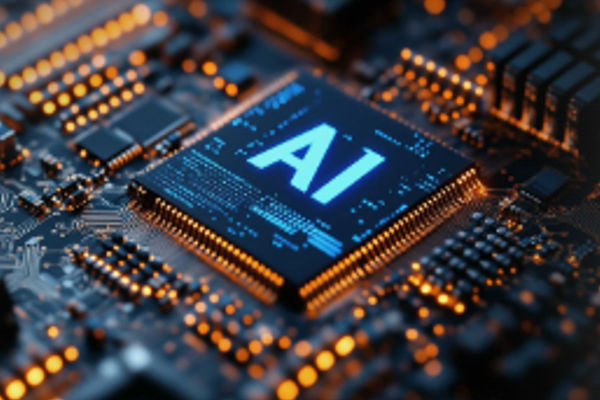Artificial Intelligence (AI) chips are specialized ICs designed to perform AI computing tasks such as natural language processing, machine learning, and data analytics. These chips have specialized processing units that aid in matrix multiplication, convolution operations, and network computations. Furthermore, the memory architectures that are part of these ICs assist in maximizing throughput. In the last few years, rises in investments in artificial intelligence systems have exponentially boosted the demand for AI chips. Moreover, the rise in demand for cloud-based applications has increased the utility of these systems significantly.
Increasing use of AI chips in modern electronics creating new investment opportunities
Over the years, the deployment of AI chips in data centers has increased drastically owing to rise in number of cyberattacks, data breaches, and malware intrusions. Several studies done by computer engineers and researchers have shown that AI tools can aid in bolstering the overall resilience of data center infrastructure. These chips are mainly employed for anomaly detection, wherein AI helps identify unusual patterns in the network and recommend actions accordingly. Based on the access logs and network traffic, AI-powered ICs can detect intrusions in real time and mitigate potential risks efficiently. Moreover, unlike traditional security systems, which are mostly reactive, AI-based data center security is mainly proactive, wherein the vulnerabilities and loopholes in the system are identified and fixed before any malicious players take advantage of them.
In addition, AI chips have played a vital role in improving the capabilities of autonomous vehicles. Autonomous cars have sensors, cameras, radars, and LiDAR, which continuously capture data regarding various parameters. AI chips are installed in such vehicles to understand the environment and improve sensor data processing abilities. These chips aid in identifying and classifying different objects like pedestrians, traffic signals, vehicles, and others, which help make appropriate driving decisions. Moreover, AI chips are the foundational pillars of Advanced Driver Assistance Systems (ADAS), which perform functions like adaptive cruise control, emergency braking, and lane keeping assist.
Investments by multinational giants boosting the revenue share of the industry
Recently, Allied Market Research published a report on the Artificial Intelligence (AI) chip market, which states that the industry accounted for $153.6 billion in 2023 and is anticipated to gather a revenue share of $3,636 billion by 2033, citing a CAGR of 37.3% during 2024-2033. The increasing investments by leading technology companies have contributed to the expansion of the sector in recent times. For example, in October 2024, AMD, a multinational corporation, announced the launch of the Instinct MI325X, an AI chip for advanced computing purposes. As per the press release issued by the company, the new product will help to address the needs of huge data centers established for generative AI tasks.
Similarly, in April 2025, Google, a major IT company, unveiled the Ironwood AI chip, an AI-powered IC designed for cloud computing applications. Developed in 256-chip and 9,216-chip clusters, the new product offers a 7.4 Tbps bandwidth and a speed of 192GB RAM per chip. The company has announced that the new chip will be integrated with Google’s AI Hypercomputer in the coming period to build a comprehensive cloud computing infrastructure. The product is anticipated to strengthen the position of the company substantially in the near future.
In conclusion, the growth of the Artificial Intelligence (AI) chip market is attributed to rise in utility of these ICs in high-end computing applications. The increasing deployment of AI-powered chipsets in data centers has increased the footprint of the sector globally. In addition, surge in demand for AI systems from the autonomous vehicle manufacturing companies is anticipated to boost the revenue share of the market in the coming period.

















